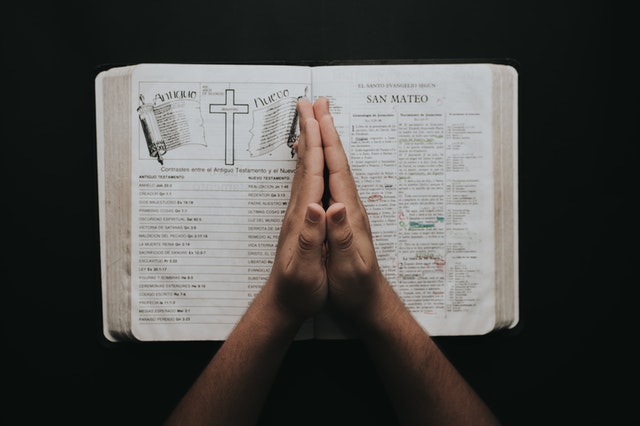IN TIMES OF GREAT STRESS–AND THE PRESENT WORLDWIDE PANDEMIC IS THE VERY DEFINITION OF STRESS–WORSHIP IS THE ONE ESSENTIAL.
This week, with the assistance of a few hundred Facebook friends, I made a poster “10 things not to do in times of worldwide crises.” You can find the poster on my Facebook page, but here it what it said…
WHAT NOT TO DO IN A WORLDWIDE CRISIS–
- Do not believe everything you read on social media.
- Do not hoard. Love thy neighbor. Share with others.
- Do not watch the news 24/7. That’s a sure-fire recipe for stress and anxiety.
- Do not fall for scams and gimmicks. Con men come out of the woodwork during these times.
- Do not look for someone to blame–God, government, China. Conspiracy theorists abound.
- Do not ignore guidelines meant to stop the spread and save lives.
- Do not interpret this as the judgment of God. It might be, but you do not know.
- Do not interpret this as a sign of the end of the world. It may be, but chances are it isn’t.
- Do not stop doing the things that keep you healthy, sane, happy, interested, productive.
- Don’t forget to worship. Your soul needs this.
Originally, after the first nine, I was left with too many candidates for the tenth slot and left it blank for a time. On Facebook I posted a photo of the incomplete poster and asked, “What’s number ten?” A hundred answers came in. However, on the back deck with my morning coffee talking with the Lord, I felt Him giving me the tenth. Don’t forget to worship. Those four words came with such force and clarity, I knew this was from Him. Not only that, but…
“Don’t Forget to Worship” was to be my Sunday sermon. You’ll find it on the church website after this Sunday.
Following are the primary points of the message, although not in any particular order.
WHY WE NEED TO WORSHIP—
As a young man, C. S. Lewis struggled with Scripture commanding us to worship. What kind of deity, he wondered, creates people and then demands that they worship Him? Is God so insecure that He needs the constant bolstering of unending praise? The idea was absurd.
And then one day it came to him: Worship is not for God. Worship is for us.
Worship is “unto” Him but it is not for Him. God is not enlarged by our praise nor diminished when He doesn’t receive it. In Psalm 50, He says,, “If I were hungry, I would not ask you. The cattle on a thousand hills is mine.”
So, why do we worship? There are probably a hundred reasons; here are three scriptures that tell us why we worship–
- “It is not in man who walks to direct his own steps” (Jeremiah 10:23).
- “Without Me, you can do nothing” (John 15:5)
- “He said to me, ‘My grace is sufficient for you, for My strength is made perfect in weakness….’” (2 Corinthians 12:9)
As the hymn says, “I need Thee every hour.”
WHY WORSHIP? WHAT GOOD IS IT?
- Worship aligns the mind and soul.
- Worship refreshes our spirits, our inner selves that get worn down by work and worry.
- Worship renews our energies.
- Worship keeps us sane.
The wonderful Warren Wiersbe used to say, “Worship pays. But if you do it to get the pay, it won’t pay.” That might need a comment. When we focus on our Heavenly Father and give Him praise and honor, when we offer Him our prayers and offerings, we come away stronger and better, refreshed and clear-minded. But if our purpose in kneeling and praying was to get these benefits, our focus would be off-target and we would come away frustrated.
How many times have we heard people pray, “Lord, help us get something out of this service today.” Then, we hear them exit the building muttering, “I didn’t get anything out of that song, that choir special, that sermon.” As though it were all about them and they had not received the promised blessing. Ask any pastor.
That said, let’s consider the nature of worship…
WHAT IS WORSHIP? WHAT DO WE DO THAT MAKES ‘WORSHIP WORK’? SEVEN ELEMENTS INVOLVED IN WORSHIP…
1.Humbling ourselves.
Think of the parable our Lord gave in Luke 18. Two men enter the Temple to pray. The Pharisee stands and looks toward Heaven, addressing God, almost, as an equal: “Lord, I thank Thee I am not as other men….” The tax-collector, on the other hand, stands afar off and will not lift up his head. He prays, “Lord, be merciful to me the sinner.” The difference was that one was humble and the other prideful.
Pride is the greatest obstacle to worship, to prayer, to obedience. The feeling that we are independent, self-sufficient, and “I can do this by myself,” is not our friend, but works against all attempts to bring ourselves to God.
2. Surrendering our wills. Scripture says, “The sacrifices of the Lord are a broken spirit; a broken and contrite heart, O God, Thou wilt not despise” (Psalm 51:17). In the words of Romans 12:1, we become “a living sacrifice,” laying ourselves on the Lord’s altar.
This may or may not involve a spirit of brokenness, but a yielded spirit is absolutely required.
3. Focusing our attention. Even if most people on earth pray–and we’re told they do– not all pray to the same god. Some pray to an idol, to a product of their imagination, or to another human. The Lord Jesus taught us to focus our prayer: “Our Father, who art in Heaven….”
Here are three scriptures on our focus–
–2 Chronicles 20:12 — King Jehoshaphat was near panic when the Assyrian army encircled Jerusalem and sent threatening messages. He prayed, “O Lord, we do not know what to do, but our eyes are upon Thee.”
–Psalm 123:2 — “As the eyes of the servants look to the hand of their masters, As the eyes of a maid to the hand of her mistress, so our eyes look to the Lord our God, until He has mercy on us.”
–Hebrews 12:2 — “Looking unto Jesus, the Author and Finisher of our Faith.”
When you pray, who are you praying to? Consider how you address the Lord. (Personally, I never address Him as “God” or “Father God” and don’t see anyone in the New Testament who did. Better to pray to “My Lord” or “Heavenly Father.” We should not, however, make an issue of this.)
4. Bringing our gifts. The first three–humility, surrender, focus–have to do with preparing to worship. These are followed by the three primary actions of worship. the first being to bring our gifts. These gifts fall into three categories…
–We bring ourselves first of all, before anything else. The Macedonian church was so generous in spite of their poverty. But first they gave themselves to the Lord. (2 Corinthians 8:5)
–We bring our praise/thanks. Hebrews 13:15 speaks of “the fruit of our lips, even praise to our God.”
–We then bring our actual offerings and gifts. Psalm 96:8 says to “Bring an offering and come into His courts.” That offering may be large or small. The widow’s gift (Mark 12) was small by human measure but greatest of all on Heaven’s scales. The first chapter of Malachi directs a fiery blast at those who bring diseased and flawed offerings to worship. “Try giving those to your governor,” the Lord says. They wouldn’t dare.
5. Asking of Him. This is prayer time. We bring Him our needs. “What do you want?”
I’ve known people to say, “I don’t believe in asking God for things.” And yet, again and again Jesus urges us to “ask, seek, knock.” He says, “If you being evil know how to give good gifts to your children, how much more will your Heavenly Father give good gifts to those who ask Him” (see Matthew 7 and Luke 11). James 4:3 says, “You have not because you ask not.”
Twice in Mark 10, Jesus asks, “What do you want me to do for you?” Then we have the wonderful Revelation 3:20 where the Ascended Christ says, “I stand at your door and knock; if anyone hear my voice and open the door I will come in and sup with Him and he with Me.” He brings Heaven’s blessings to our door, but will not force them upon us; He waits to be asked.
6. Committing all to Him. At the end of the ideal prayer from our Lord, Jesus teaches us to say, “For thine is the kingdom and the power and the glory forever.” We are reaffirming that it’s all His, that His will is supreme, and are committing ourselves to Him. We are available for His purposes.
7. Staying obedient and faithful, watchful and worshipful. Worship should not end when we utter the final ‘amen.’ Let us live lifetimes of worship.
A word about these seven aspects of worship. In one sense they are sequential, occurring in this order. But in another sense, they are all simultaneous and can happen in one moment as we drop to our knees in prayer and submission.
THE PUREST PICTURE OF WORSHIP IN HOLY SCRIPTURE…
There are many candidates for this honor– Job after the death of his children (Job 1:20-21), Isaiah in the temple after the death of the king (Isaiah 6:1ff), and Mary in Luke 10:39 as she sits at Jesus’ feet when Martha is frantically rushing around doing all the work. But to me, the winner, hands down, is the unnamed woman of Luke 7 who entered uninvited into the home of a Pharisee because she had heard that Jesus was there.
I envy this lady. I admire her courage. I love how she had eyes only for the Lord Jesus and cared not one whit what people thought of her being there. She knew she was privileged to be in His presence.
You know that feeling?
Inside the Pharisee’s home, the woman proceeded to make a spectacle of herself, while becoming the object of discussion and leaving us with an unforgettable lesson from our Lord. Anyone not family with this story will love reading it, beginning at Luke 7:36 and continuing for the rest of the chapter.
Look at what the woman did. It requires no comment from us but–no surprise!–we have a hard time refraining from expressing our admiration…
–She is described as “A woman in the city who was a sinner.” We’re told this was a euphemism for a prostitute. Hers is called the oldest vocation, but almost without exception every culture has looked with contempt on such women. The story in John 8 shows perfectly well how the religious “good” people–Lord, help us!–often treated them. (I love that in major cities, like New Orleans, Godly women have mobilized an outreach to women who work in nightclubs and strip joints. God is using them mightily.)
–When she learned that Jesus sat at the table in the Pharisee’s house, she entered and stood at His feet. Imagine that. Have you ever felt out of place? Ever gone where you were not welcome but stayed anyway? Ever had people stare at you in disgust?
(Remember that the custom was to “recline at table,” with both the couches and the tables being low to the floor. You leaned forward, supported yourself on your left elbow and ate with your right hand, assuming you were a rightie. One’s feet would be stretched toward the back, making it easy for someone to approach from the rear.)
–She stood at His feet weeping. At first, I assume she did not want to cause a disturbance. She was drawn to Him as by the most powerful magnet. (I know that feeling, and bet you do too.) She just wanted to be in His presence.
–She began to wash His feet with her tears. We know this feeling also.
–Then, seeing what she had done and not having a towel, she let down her hair and wiped His feet with the hair of her head.
–And she kissed His feet. We stand in awe of such love and devotion.
–She anointed His feet with the fragrant oil. The phrase “in for a dime, in for a dollar” comes to mind. She’s gone this far, why not honor Him with the fragrance in the little alabaster flask she carried with her (for her profession).
The fragrance filled the house, no doubt. And surely it lingered with our Lord for a time. The teachings of 2 Corinthians 2:14-17 comes to mind, that we are a fragrance of Christ.
Some day, we shall see Him. And we shall worship Him the way our hearts have always wanted to worship.
But not yet. For the time being, we see through a glass darkly (I Corinthians 13:12), do not know how to pray as we should (Romans 8:26), and walk by faith, not by sight (2 Corinthians 5:7).
“O Lord, our God, little children praise You perfectly. And so would we.”
“And so would we.”
We shall, friend. Mark it down.
That time is coming. We shall see as we are seen, shall know as we are known, and shall walk by sight. (see I John 3:1ff)
Until then, be faithful.
The Majesty and Glory.” lyrics by Tom Fettke and Linda Lee Johnson







